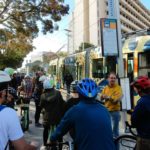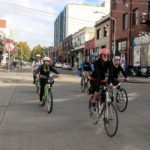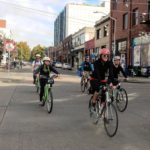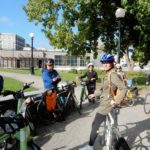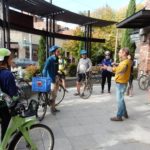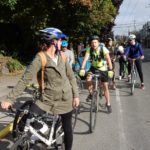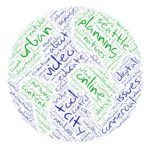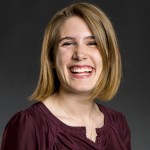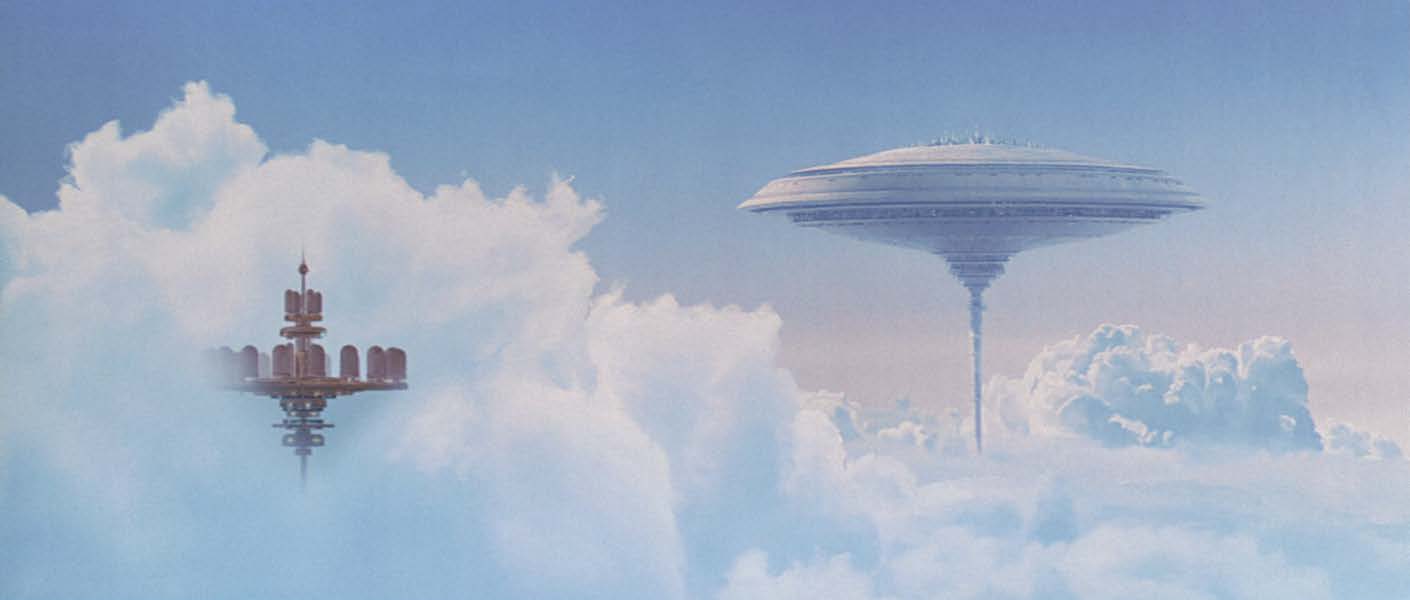The Online Master of Infrastructure Planning & Management (MIPM) in the Department of Urban Design and Planning has been recognized as one of the top ten programs at the University of Washington enrolling student veterans. MIPM is designed for early- or mid-career professionals who want to advance their career and take a leadership role while offering students a flexible format as a part-time, two-year program. Courses are completely online, enabling students to earn the MIPM degree from anywhere in the world.
University of Washington-led study shows new global evidence of the role of humans, urbanization in rapid evolution
It has long been suspected that humans and the urban areas we create are having an important — and surprisingly current and ongoing — effect on evolution, which may have significant implications for the sustainability of global ecosystems.
A new multi-institution study led by the University of Washington that examines 1,600 global instances of phenotypic change — alterations to species’ observable traits such as size, development or behavior — shows more clearly than ever that urbanization is affecting the genetic makeup of species that are crucial to ecosystem health and success.
Read the entire article HERE
Professor Emerita Anne Moudon Final Lecture
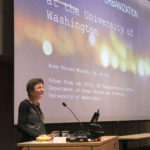 Late Saturday evening, the UW department of urban design and planning held an event celebrating the accomplishments of one of their newly retired professors.
Late Saturday evening, the UW department of urban design and planning held an event celebrating the accomplishments of one of their newly retired professors.
Touted as her “final lecture,” professor emeritus Anne Vernez Moudon held this event to both raise money for her new fund as well as review the history of urban design and planning.
Christopher Campbell, chair of the department of urban design and planning, gave a brief introduction of professor Moudon’s lifetime achievements.
Professional Council Fall Bike Tour
Our incoming and existing Master of Urban Planning students were treated to a Designing Seattle bike tour the Saturday before autumn quarter started. The tour was hosted by members of the Urban Design and Planning Professional Council and had over 20 participants.
The ride started at Volunteer Park and ended at South Lake Union by the Museum of History and Industry. The tour passed through Capital Hill, Pioneer Square, Westlake, Downtown, the Olympic Sculpture Garden and Belltown.
This was the first year the P.C hosted this event and we hope it will carry on for years to come!
Distinguished Staff Award Winner 2015-2016
Congratulations to our very own Diana Siembor who is the 2016 CBE Distinguished Staff recipient!
The Distinguished Staff Award is intended to recognize the recipient’s extraordinary contributions to the College.
We are so proud !!!
UDP PROFESSIONAL COUNCIL POSTER NIGHT
Wednesday May 25 | 7-8:30
Gould 435
CLICK TO READ MORE ABOUT THE MOST RECENT POSTER NIGHT
Join us as we celebrate our graduating MUP students by coming to the UDP Professionals Council annual poster contest Wednesday, May 25.
This is an opportunity for MUP’s to showcase their Thesis or Professional project in the form of a poster.
Professionals Council members will make up a panel of judges who will determine three of the best Thesis and best Professionals Project posters and there will be awards!! In addition, guests attending the event will each be given one ballot to cast towards the selection of a People’s Choice award.
The evening will also include the annual UDP student awards which recognize students for their exceptional contributions to the department.
Current students, faculty and friends and family are encouraged to attend.
Refreshments provided.
CEP Student is Recognized as a Husky 100
CEP Junior Veronica Guenther
BS Economics / BA Community, Environment and Planning (CEP) ’17 was one of 100 students recognized as a Husky 100!
I am committed to implementing equitable, environmentally-conscious and economically-viable urban policy through inclusive, community-empowering practices. Currently, I’m working to further this goal as the outreach coordinator at the student-run, student-funded Campus Sustainability Fund. Working in environmental outreach and advocacy, I’ve learned how to continuously reach out to my community with more than just grim facts, but a means for everyone to positively contribute.
Veronica Guenther
The Husky 100 recognizes 100 UW undergraduate and graduate students from Bothell, Seattle and Tacoma in all areas of study who are making the most of their time at the UW.
As part of this prestigious group, students will receive:
Recognition at a Husky 100 event in spring quarter, and individual profiles on a Husky 100 website that will launch in May 2016
Opportunities throughout the following academic year to expand networks with UW students, alumni, faculty, staff and business leaders
Membership in an exclusive LinkedIn group that will help build connections with employers
Customized career counseling from the UW Career Center
Invitations to events hosted by the UW president and provost
Husky 100 Criteria
The Husky 100 know that education happens inside and outside of the classroom, and they are making a difference on campus, in their communities and for the future. Through their passion, leadership and commitment, these students inspire all of us to shape our own Husky Experience.
The Future City: Emergence of a New Science
The Future City: Emergence of a New Science 2016 Annual Symposium of the Interdisciplinary PhD Program in Urban Design and Planning
Thursday, May 5 / UW Intellectual House, 9:00 AM—4:00 PM
Future City Poster Session Reception 4:30-6:00 Gould Pavilion Gallery
Please RSVP by Thursday April 28, (lunch is provided)
What drives urban evolution? Are there underlying mechanisms and universal laws of urban change? What are the scenarios of plausible urban futures? What do we know, and what do we not know? How can big data and new technologies transform the sciences, decision-making, and the practice? What are the emerging challenges for future research? What kinds of cities do we want to live in? How can communities imagine and direct urban change to create the cities we desire?
Structure
The symposium will start this exploration by bringing together faculty and students from diverse disciplines in one-day event structured in two sessions led by two keynote speakers and followed by two panels. The morning session will discuss what we know of the drivers of urban change and underlying mechanisms leading innovation and elaborate the challenges and opportunities for the study of cities. In the afternoon session we will explore plausible urban futures and the implications for graduate education and the practices. A poster session (during lunch) led by the students from different UW PhD Programs will feature research on urban issues from different disciplines.
Keynote Speakers
Luis Bettencourt is a theoretical physicist and professor at the Santa Fe Institute. He studies the city as a complex system with an emphasis on identifying underling laws that drive innovation and urban change as well as the role of social networks within these urban systems.
Carlo Ratti is an architect and engineer at the Massachusetts Institute of Technology, where he directs the Senseable City Lab which explores urban imagination and social innovation through design & science.
Panel Discussions Panel 1 (morning)-‐ What are the drivers of urban change?
Sara Curran: Associate Professor of International Studies and Public Affairs, Director, Center for Studies in Demography and Ecology, UW
Kyle Crowder: Blumstein-‐Jordan Endowed Professor, Department of Sociology, UW
Jessica A. Lee: Senior Policy Associate and Associate Fellow, BROOKINGS, Centennial Scholar Initiative
Jan Whittington: Associate Professor, Urban Design and Planning, Associate Director, Center for information Assurance and Cyber Security, UW
Panel 2 (afternoon)-‐ What are scenarios of possible urban futures? Mark Hallenbeck: Director, Washington State Transportation Center (TRAC)
Eileen Gunn: Science Fiction Writer
Jesse Berst: Chairman, Smart Cities Council
Lara Whitely Binder: Outreach Specialist, Climate Impacts Group, UW
Resilience and Asian Urbanism | A Collaborative Workshop
This joint workshop between the Center for Asian Urbanism and the UW faculty cluster for Resilience in the Built Environment highlights the UW’s capacities to apply cultural context-specific expertise to problems of urbanization across the Pacific. Preceding the 75th Anniversary conference of the Association for Asian Studies in Seattle (March 31-April 3, 2016), the UW Workshop on Resilience and Asian Urbanism gathers a unique group of leading scholar-professional-activists to inspire and facilitate creative and fundable long-term partnerships in both research and action. Cases and discussions of indigeneity and place-based resilience, water-sensitive urbanization, and new urban-rural relations will highlight the mutual relevance of expertise in global-area studies and the professional built-environmental disciplines; explore the potential for border-crossing applications of experience; and suggest new linkages within the university.
Sponsored by the UW College of Built Environments Dean’s faculty cluster funding for Asian Urbanism and Resilience in the Built Environment; the UW Jackson School of International Studies and East Asia Center; and the Confucius Institute of Washington.
For more information click here
Sustainable City Year
A group of UW faculty is considering a university-community applied research and teaching program called Sustainable City Year. It originated at the U of Oregon and now many universities, including WWU, are running similar programs. The program pairs a city and a university with a budget of $200-300K each year paid by the partner city. The university then utilizes multiple classes across the university to serve and advise the city.
